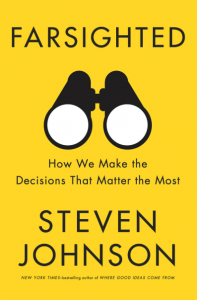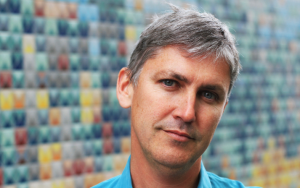
Precision decision making


Charles Darwin before he published On the Origin of Species wrestled with the predicament to marry or not to marry?
Steven Johnson’s classic Where Good Ideas Come From Inspired creative people all over the world with new way of thinking from innovation and important skill of complex decision-making. You can model the deliberative tactics of expert decision-makers who are not just the master strategists running major companies or negotiating high-level diplomacy. They’re the novelist who draw out the complexity of their characters’ inner lives, the city officials who secure long-term water supplies, and the scientists who reckon with future challenges most of us haven’t even imagined. The smartest decision making relies on having a future-oriented approach and the ability to consider all their options in a creative and productive way.
He made a list of two columns, on the right were a dozen reasons in favour, on the left were the negatives. Steven Johnson suggests that we hardly made any progress since grappling with similar complex and long-term decisions. The science of making hard choices has been stagnant for two centuries, We still rely mostly on “instincts and intuitions” when seeking to solve the trickiest problems.
Johnson gives us example from 17-century urban planning to contemporary artificial intelligence. His dilemma came when he pondered few years back whether to uproot his family from New York to California. His argument is an attack on simple short-termism.
Johnson who made his name with Emergence (2001), which claimed that complex outcomes could often be created without central direction, as an ant colony forages for food or coders around the world write open source software.
The 2011 raid to kill Osama bin Laden is typical case, providing Farsighted with one of its central narratives. He explains in detail the meticulous research that went into finding the al-Queda leader’s Pakistani compound and then deciding how precisely to attack it.
Johnson writes “after several weeks of the raid, President Barack Obama presented a gift to its main architect William McRaven, “The plaque featured a tape measure” symbolising the one piece of kit the planners forgot to include, to measure Bin Laden’s body.”
This year Bank of England chief economist Andrew Haldane pushed the ideal of regional councils involving members of the public too, with the aim of improving decision making at the UK’s central bank.
Johnson admits that he did not follow complex methods when he eventually settled on a compromise plan to move his family to California for only half of each year. Drawin went with his gut instinct too, when eventually he decided to forgo the charms of clever men in clubs and marry his sweetheart Emma, beginning a long-lasting union that produced 10 children.
We still have lot to learn about decision-making, big organisation could learn from military strategy. Johnson’s research come to conclusion that reading fiction can improve decision-making as it helps us to see decisions from the point of view of others.
Farsighted: How We Make the Decisions that Matter the Most by Steven Johnson, Riverhead $28, 256 pages.
